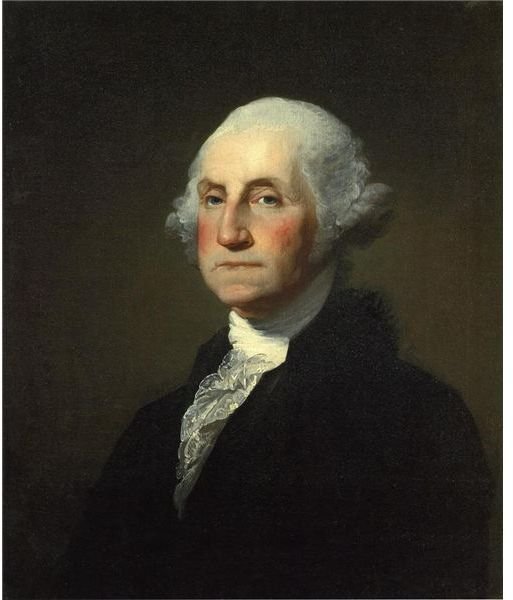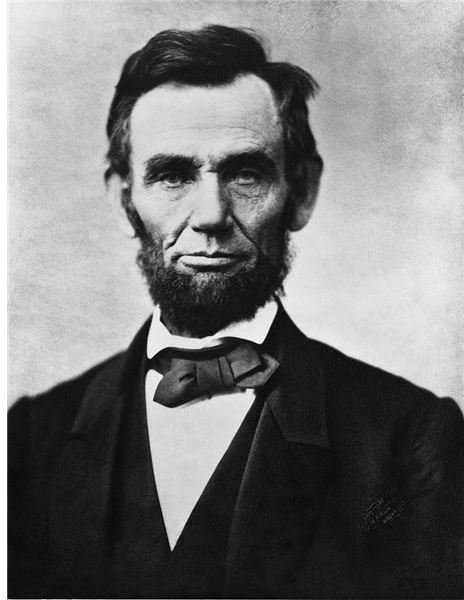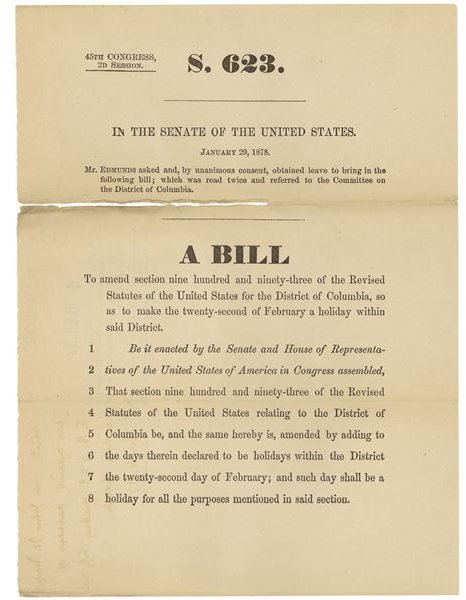History of Presidents' Day: Celebrating the Birthdays of George Washington and Abraham Lincoln
We do have a holiday on which we celebrate the birthdays of two presidents. In many locations throughout the United States, what was once two separate holidays, one for George Washington’s birthday and one for Abraham Lincoln’s, is now combined and celebrated on the third Monday in February, no matter the date.
And Did You Know?
As noted in the National Archives, the official federal designation of this holiday is “Washington’s Birthday.” Although some state and local governments, private businesses, and other organizations may use other names, it is federal policy to always refer to holidays by the names designated under law.
Americans celebrated Washington’s Birthday long before Congress declared it a federal holiday. Washington’s Birthday, however, did not become a legal holiday until January 31, 1879 when Congress added February 22nd to the list of holidays to be observed by federal employees in the District of Columbia. (See a photo of the bill at left.)
Monday Holiday Law
Then in 1968, our Congress in Washington, D.C. decided to permanently move the recognized date of several holidays by creating the Uniform Monday Holiday Act. Why would they do that? A large part of the reason was to give government workers a three day, work-free weekend! Congress designated the third Monday in February as Washington’s Birthday, and the change officially began in 1971.
The unofficial name “Presidents’ Day” came later, at least partly to honor Abraham Lincoln, whose birthday was on February 12, but some citizens hoped it could be a day to honor all presidents. Contrary to popular belief, neither Congress nor the President has ever decreed that the name of the holiday observed as Washington’s Birthday be changed to “Presidents’ Day” even though the debate has come up many times.
Confusion for George

George Washington, our first president, was actually born on February 11, in 1732. But, the English calendar changed during his lifetime, which meant his birthday moved to February 22. It took 58 years for that to officially change however, and even long after his death, people celebrated both dates.
Washington was general and commander-in-chief of the colonial armies during the American Revolution. And even though Washington’s troops suffered a brutal winter at Valley Forge, Pennsylvania in 1778, they still celebrated his birthday by making music with fife and drum.
Nicknamed the “Father of our Country,” Washington was popular and beloved during his United States presidency from 1789 to 1797—so much so, that plans were made to name a capital city after him and have a military parade to commemorate it. The proud new world citizens of the day did not throw off everything British however, because the tradition of publicly celebrating the current king’s or queen’s birthday survived with President George Washington.
Washington’s Legacy
After a full life and following a brief illness—possibly a serious throat and lower respiratory infection from getting wet and chilled—Washington died on December 14, 1799 at the age of 67.
He was buried at his family’s estate at Mount Vernon in Virginia. Congress declared February 22, 1800, a national day of mourning. When one hundred years had passed, the centennial of his birth came round in 1832, and many celebrations were held. Then, in 1848, construction began on the Washington Monument, which took almost four decades to build due to co-opted interference by the Know Nothing party, a lack of funds, political turmoil, and uncertainty about intervention of the American Civil War, which all caused interruption of the task.
Abraham Lincoln

Abraham Lincoln was born on February 12, 1809. Known for his presidency during the Civil War, Lincoln was inaugurated in March of 1861—the bloody war would begin a month later. He was assassinated in April of 1865, only a few days after the Confederate Army surrendered. It comes as no surprise then that no birthday celebrations took place during his tenure. After his death, organizations such as New Jersey’s “Lincoln Association” hosted local commemorations for remembrance of his birth.
It wasn’t until 1892, however, that Lincoln’s birthday finally became established as a holiday in his home state of Illinois. Many states followed Illinois’ lead, but not surprisingly, several southern Confederate states choose to honor their own Civil War leaders—Jefferson Davis, President of the Confederacy, and Robert E. Lee, head of the Confederate Army—instead.
The construction of the Lincoln Memorial began with the ground-breaking ceremony on his birthday in 1914 in Washington, D.C. It was officially dedicated on his birthday in 1922.
Celebrations Today
The Congressional Record of 1968 said one of the reasons for the three day holiday would be: “The three-day span of leisure time . . . would allow our citizens greater participation in their hobbies as well as in educational and cultural activities.”
Americans typically celebrate Washington’s and Lincoln’s birthdays with parades, ceremonies at the federal monuments, and with plays or actors depicting the presidents’ lives. For President Washington, a wreath is laid at Mount Vernon, and in Valley Forge, the encampment of the colonial army is played out again as a reenactment.
Because Washington was known for a manufactured story about his chopping down a cherry tree and the subsequent fact that he could not lie to his father about the deed, a popular holiday dessert is cherry pie. This is also a great day to visit museums with your family—or how about making a Lincoln’s log cabin out of pretzels and peanut butter?
References
- Fast Facts: http://www.cnn.com/2013/09/13/us/washingtons-birthday-fast-facts/
- Bank holiday remarks by: Stephen W. Dorsey, “February Twenty-Second,” remarks in the Senate Congressional Record, vol. 7, Feb. 12, 1878, p. 955, http://www.senate.gov/reference/resources/pdf/Federal_Holidays.pdf
- Constructing the Washington Monument: http://www.nps.gov/nr/travel/wash/dc72.htm
- History channel on Presidents’ Day: http://www.history.com/topics/presidents-day
This post is part of the series: Curious Customs: Stories Behind Popular Holidays
We take holidays for granted in that we celebrate them according to tradition, but where did the tradition come from? Why do we buy a Christmas tree? Why are hearts popular on Valentines? What is the reason we decorate pumpkins for Halloween? Find out in this series.
- The History of Valentine’s Day
- The Origin of Presidents’ Day: Who Are We Celebrating?
- Who Was St. Patrick?
- Origin of April Fool’s Day
- The Science, History and Culture Behind the Spring Equinox
- Curious Customs: Stories Behind Popular Holidays—Passover Seder
- Curious Customs & Stories Behind Mother’s Day
- History & Origins of Labor Day
- The Origins of Common Good Luck Traditions
- Three Superstitions and Their Origins
- The History of the Olympic Games
- What is All Hallows Eve? The Customs and Origins of Halloween
- The Origins of Thanksgiving: The Whole Truth and Nothing But the Truth
